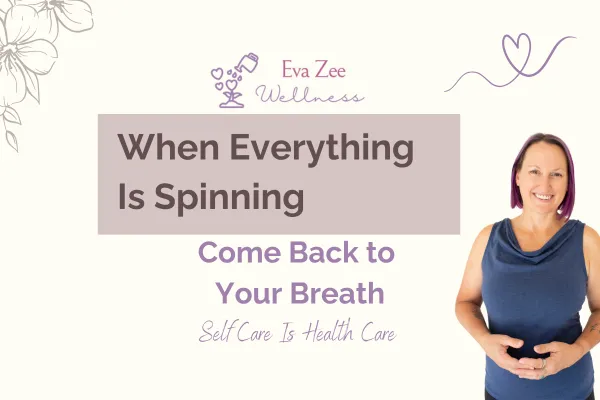
When Everything’s Spinning, Come Back to Your Breath
When Everything's Spinning, Come Back to Your Breath
You don't need a full class, a quiet room, or even a yoga mat. You just need one breath.
As healthcare professionals, we know our nervous systems intimately - even when we wish we didn't. That hyper vigilance that keeps us sharp during a code? It doesn't just shut off when we clock out. Your body holds the memory of every alarm, every urgent call, every moment when someone's life hung in the balance. You've experience this if you've tried to fall asleep after a crazy shift but suddenly your home seems to have alarms coming from the closet or shower. On your days off, you feel the weight of the day in your body, your heart rate stays elevated, and sleep feels like a luxury you can't quite afford.
This isn't a character flaw or something you need to "get over." This is your autonomic nervous system doing exactly what it was designed to do - keep you alive and alert. But here's what I've learned through both my nursing practice and years of studying yogic philosophy: we can work with our physiology, not against it.
The Science Behind One Conscious Breath
When you take a slow, intentional breath—particularly one with a longer exhale—you're activating your parasympathetic nervous system through the vagus nerve. This tenth cranial nerve is like a biological reset button. Research shows that controlled breathing, especially with extended exhalation, stimulates the vagal response and shifts us from sympathetic dominance (fight or flight) toward parasympathetic activation (rest and digest).
From a yogic perspective, this makes perfect sense. The ancient texts describe prana as our life force, and pranayama as the practice of expanding or regulating that vital energy through breath. When we consciously engage with our breath, we're not just managing stress, we're connecting with something deeper. We're honoring the sacred relationship between our physical body and our energetic body.

A Practice That Fits Your Real Life
Here's what I want you to try this week, and I'm saying this as someone who's been there—exhausted, overwhelmed, and convinced I didn't have time for "self-care." Set a gentle reminder on your phone for every couple of hours. When it goes off, just pause and take one intentional breath:
Inhale through your nose for a count of 4
Hold gently for 1-2 counts
Exhale slowly through your mouth for 6-8 counts
Feel your feet on the ground. Soften your jaw. Notice your shoulders dropping just slightly. That's it.
This isn't about perfection or adding another task to your already full plate. It's about creating what we call in trauma-informed care a "pattern interrupt". This is a moment that breaks the cycle of chronic stress activation. Your nervous system needs these micro moments of regulation throughout the day, not just at the end of it.
For Those of Us Who Hold It All
I see you. The nurses working back to back shifts, the parents juggling work and family, the caregivers who give everything and somehow still feel like it's not enough. This practice isn't about becoming a different person or achieving some zen state. It's about meeting yourself exactly where you are, in the middle of the chaos of caring for others.
Some days you'll remember to breathe consciously. Other days you'll realize at 3 PM that you've been holding your breath since morning. Both are completely human responses to an inhuman amount of stress. What matters is the returning, not the staying.
The yogic tradition teaches us that the breath is the bridge between the voluntary and involuntary, between what we can control and what we can't. In a profession where so much feels beyond our control, reconnecting the relationship with our breath is both a practical tool and a profound practice of self compassion.
Your breath doesn't need perfect conditions. It just needs your attention. And maybe, just maybe, that one conscious breath is the most powerful medicine you can offer to yourself, and by extension, to everyone whose life you touch.
